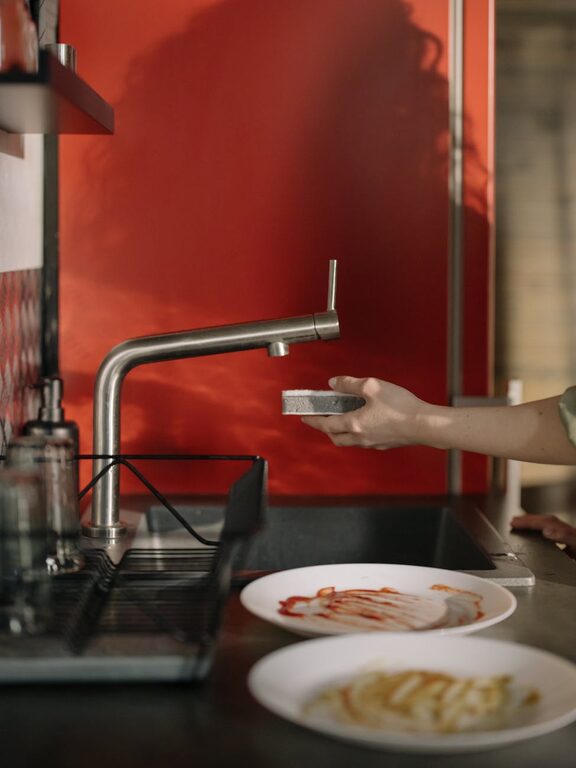Making dinner is often a joyful and creative part of the day, but the cleanup afterward can sometimes feel like a chore. Fortunately, there are many ways to make dinner cleanup easier, quicker, and less stressful. With a few simple habits and smart strategies, you can transform the cleanup process and spend more time enjoying your meal and less time scrubbing.
In this post, we’ll explore practical ideas for simplifying dinner cleanup, organizing your kitchen efficiently, and staying on top of messes as you cook.
Plan Ahead to Reduce Cleanup
Planning is the first step to an easier cleanup.
Use Fewer Dishes and Utensils
Whenever possible, try to cook meals that use fewer pots, pans, and utensils. One-pot or sheet-pan recipes are ideal because everything cooks and serves from a single dish, minimizing what needs washing afterward.
Tips:
– Choose sautéing or stir-frying recipes that require just one pan.
– Bake multiple ingredients on a single sheet pan lined with parchment paper or foil for easy cleanup.
– Use measuring cups and spoons for dry ingredients, which are easier to rinse, instead of using multiple bowls.
Prep Ingredients Mindfully
Organized prep can limit the mess later.
– Chop vegetables over a cutting board that’s easy to clean or line it with a disposable mat.
– Wash produce in a designated area and drain in a colander to avoid water spills.
– Measure and gather ingredients in advance, then clean up prep tools as you go.
Clean as You Cook
Washing dishes during cooking prevents a pileup at the end.
– Wash cutting boards, knives, and bowls as soon as you finish using them.
– Rinse utensils and spoons right after stirring or tasting.
– Load the dishwasher throughout the meal prep instead of waiting.
This continuous cleanup method creates a less intimidating task after dinner.
Use Kitchen Tools to Your Advantage
Certain kitchen tools can make cleaning easier.
Liners and Mats
– Use parchment paper or aluminum foil on baking sheets to avoid baked-on messes.
– Silicone baking mats are reusable and non-stick, simplifying cleanup.
– Sink strainers catch food scraps and prevent clogged drains.
Non-Stick Cookware
Investing in good quality non-stick pans reduces stuck-on food and means less scrubbing after cooking.
Dishwasher-Friendly Items
Choose cookware, dishes, and utensils that are dishwasher safe so you can simply rinse and load them for cleaning.
Organize Your Workspace
A clutter-free kitchen is easier to clean.
– Keep countertops clear by storing small appliances and tools away.
– Use drawer dividers to organize utensils and keep them handy.
– Have designated spots for dish soap, sponges, and towels for quick access during cleanup.
Make Wiping and Washing Efficient
Keep Cleaning Supplies Handy
Place cleaning wipes, sponges, and dish soap nearby to encourage immediate cleanup.
Wipe Surfaces Frequently
Spills and splatters are easier to remove if wiped promptly. Wipe down stovetops, counters, and tables during cooking breaks.
Use Hot Water and Soak Dishes
Fill pots and pans with hot soapy water to soak immediately after use. This softens stuck-on food and makes the final scrubbing faster.
Create a Post-Dinner Routine
Having a clear cleanup routine ensures tasks get done quickly.
- Clear the table and put away leftovers.
- Soak cookware if necessary.
- Load dishwasher or hand wash dishes.
- Wipe down counters and table.
- Sweep or spot-clean kitchen floor.
Setting a timer for 15-20 minutes each night to focus on cleanup can keep mess manageable.
Involve Family Members
Sharing cleanup duties reduces individual effort and teaches good habits.
– Assign tasks according to age, such as clearing plates for younger kids and washing dishes for teens.
– Create a rota or chart so everyone knows what to do.
– Make cleanup fun by playing music or turning it into a game.
Use Smart Storage Solutions
Proper storage reduces clutter and mess.
– Store leftovers in stackable, sealable containers.
– Label containers with dates to avoid forgotten or messy leftovers.
– Keep ingredients and spices organized on racks or in baskets for easy access and reduced spills.
Consider Meal Prep and Batch Cooking
Preparing meals in advance can greatly reduce cooking and cleanup during busy evenings.
– Cook large batches and freeze portions for quick reheating.
– Use slow cookers or Instant Pots for easy one-pot meals.
– Prepare ingredients (chopped vegetables, sauces) ahead and store them in reusable containers.
Final Thoughts
Dinner cleanup doesn’t have to be a dreaded chore. By planning meals that limit dishes, cleaning as you go, organizing your kitchen, and involving others, you can make cleanup faster and less stressful. These habits not only keep your kitchen tidy but also make mealtime more enjoyable.
Try incorporating these ideas one step at a time and watch how your cleanup routine improves. Small changes can lead to big benefits!
Happy cooking and easy cleaning!

